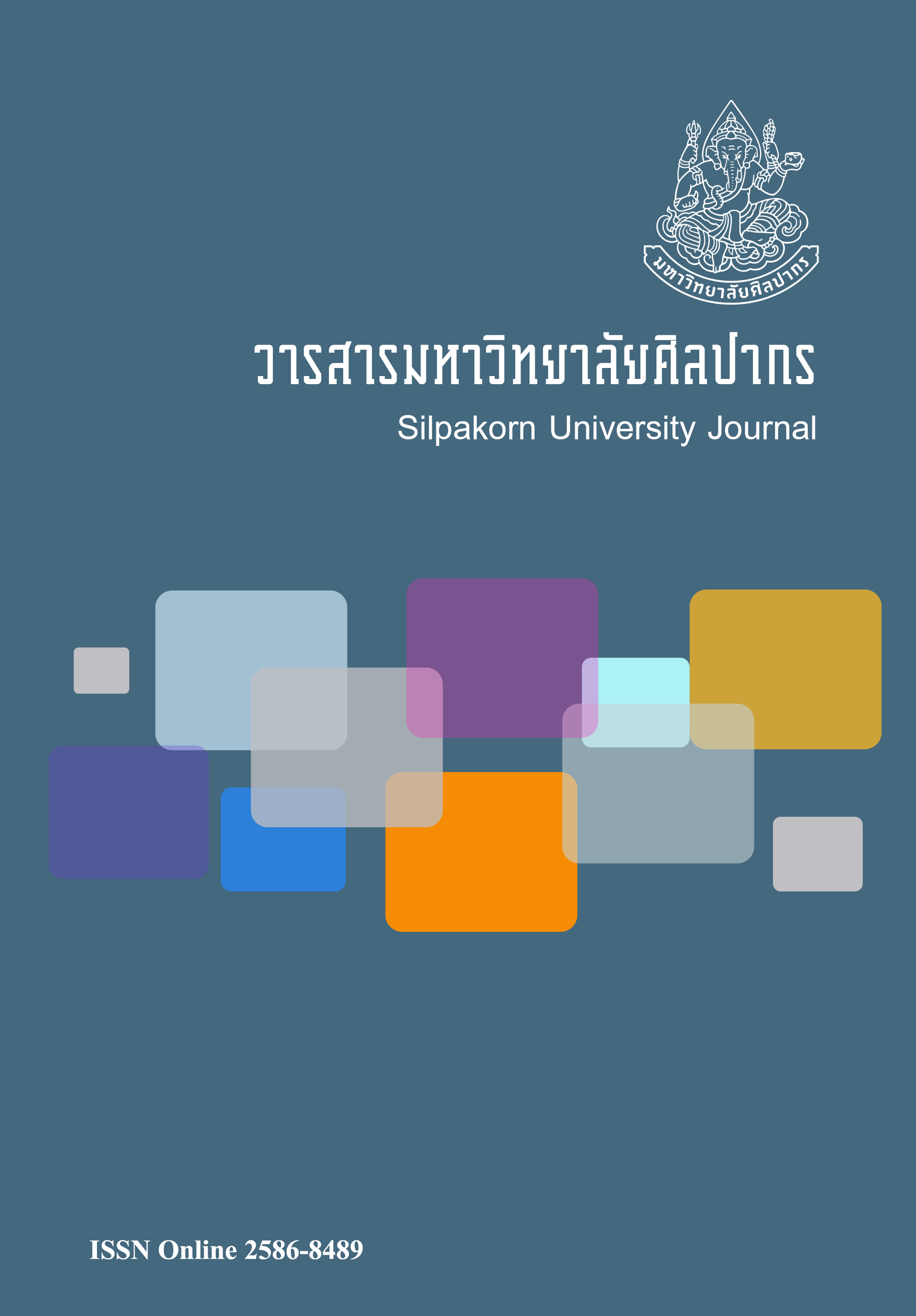ความต้องการรับบริการด้านที่พักของนักท่องเที่ยวมุสลิม (Demands of Muslim touristsfor halal-friendly accommodations)
Main Article Content
Abstract
เนื่องจากประชากรมุสลิมมีอัตราการเพิ่มที่รวดเร็ว กอปรกับมีการส่งเสริมการท่องเที่ยววิถีมุสลิมที่สอดคล้องกับวิถีปฏิบัติตามหลักคำสอนทางศาสนา ส่งผลให้ธุรกิจการท่องเที่ยวมุ่งพัฒนาบริการสำหรับนักท่องเที่ยวกลุ่มนี้มากขึ้น ซึ่งองค์ประกอบสำคัญประการหนึ่งที่นักท่องเที่ยวใช้ประกอบการตัดสินใจท่องเที่ยวคือโรงแรมที่ให้บริการระหว่างการท่องเที่ยว บทความฉบับนี้จัดทำขึ้นเพื่อนำเสนอแนวโน้มการให้บริการโรงแรมวิถีมุสลิมซึ่งเริ่มต้นพัฒนาในแถบตะวันออกกลาง จากนั้นจึงขยายตัวไปสู่ภูมิภาคอื่นๆ โดยเฉพาะในแถบเอเชียตะวันออกเฉียงใต้มีประเทศที่ให้ความสำคัญกับการพัฒนาที่พักประเภทนี้ ได้แก่ อินโดนีเซีย สิงคโปร์ และมาเลเซีย ผู้วิจัยศึกษารูปแบบความต้องการที่พักตามหลักศาสนาอิสลามด้วยวิธีการปริทัศน์เชิงพรรณนาสามารถจำแนกความต้องการของผู้เข้าพักได้ 7 ประเภท ได้แก่ การปฏิบัติศาสนกิจ การให้บริการของพนักงาน การออกแบบและการตกแต่งห้องพัก อุปกรณ์ที่ให้บริการในห้องพัก การบริการช่วงการถือศีลอด การเงิน และการบริการทั่วไป จากความต้องการดังกล่าวสามารถจำแนกระดับการให้บริการตามวิถีมุสลิมในระดับต้น กลาง และสูง ผลการศึกษาเป็นประโยชน์ต่อหน่วยงานด้านการจัดการท่องเที่ยวและผู้ประกอบการสามารถนำข้อมูลไปใช้ประกอบการออกแบบบริการที่เหมาะสมเพื่อรองรับการท่องเที่ยววิถีมุสลิม รวมทั้งนักวิชาการสามารถนำข้อค้นพบไปใช้ประกอบการเรียนการสอนและต่อยอดสู่งานวิจัยได้
The drastic increase in Muslim population growth, as well as the promotion of Halal tourism in accordance with Islamic beliefs and practices, have encouraged tourism industries to develop services for Muslim travelers. One of the factors that influence travelers’ decision is accommodations and services. This article aims to present the concept of halal-friendly accommodation trend that has begun in the Middle East and then expanded to other regions. Furthermore, countries in Southeast Asia including Indonesia, Singapore and Malaysia, also place a great deal of importance on the development of Islamic-oriented hotels.
This article studied the demands for halal-friendly accommodations through narrative reviews. The demands of travelers were classified into 7 types: practice of religious activities, hospitality services from the staff, accommodation designs, room amenities, services to cater for specific needs during Ramadan, finance, and other services in general. Based on the demand categories, the provision of services was rated as primary, medium, or high levels in accordance to which extent the hospitality service met the needs of Muslim travelers. The outcome of this study will benefit tourism organizations while hospitality operators can use information to design and develop services to cater for the demand for halal tourism. In addition, academics can also utilize the outcome of this study for teaching and further research.
Downloads
Article Details
References
Al Jahwari, D. S. (2015). An integrative model of Muslim students’ religiosity and travelling behavior to gaming destinations. Doctoral dissertation, University of South Carolina, Columbia. Retrieved May 1, 2016 from http://scholarcommons.sc.edu/etd/3214
Aree, S. (2016). Halal tourism: opportunity of Thailand for the ASEAN economic community (การท่องเที่ยววิถีอิสลาม : โอกาสของไทยในประชาคมเศรษฐกิจอาเซียน). Journal of Humanities and social Sciences, Rangsit University, 10(18), 1-17. Retrieved August 3, 2016 from http://www.rsu.ac.th/jla/public/upload/journal/article/abstract/20160630abstractFV453.pdf
Aree,S. (2015, July 10). Halal Tourism 2015 (การท่องเที่ยววิถีมุสลิม 2015). Kom Chad Luek, Retrieved April 14, 2016 from http://www.komchadluek.net/detail/20150710/209490.html
Battour, M. M., Ismail, M. N., & Battor, M. (2010). Toward a halal tourism market. Tourism Analysis, 15(4), 461-470. doi:10.3727/108354210X12864727453304
Battour, M. M (2011). The impact of destination attributes on Muslim tourist’s choice. International Journal of Tourism Research, 13(6), 527–540.doi:10.1002/jtr.824
Department of Tourism, Ministry of Tourism and Sports. (2009a). Longstay standard Thailand (มาตรฐานที่พักเพื่อการท่องเที่ยวแบบพำนักระยะยาว)[Online]. Retrieved July 16, 2016 from http://61.19.55.30/dotdoc/v3/docs/service/LongstayStandard.pdf
Department of Tourism. (2009b).Homestay Standard Thailand (มาตรฐานโฮมสเตย์ไทย พ.ศ.2551) (4th ed.). Bangkok: Chulalongkorn University Printing House.
Department of Tourism. (2009c). Accommodation standard for tourism: hotel, resort, serviced apartment, guesthouse (มาตรฐานที่พักเพื่อการท่องเที่ยว: โรงแรม รีสอร์ต เซอร์วิสอพาร์ตเมนต์ และเกสต์เฮาส์) (2nd ed.). Bangkok:Chulalongkorn University Printing House.
Department of Tourism, Ministry of Tourism and Sports. (2014a).1-4-star standard hotel in Thailand (มาตรฐานการท่องเที่ยวไทย มาตรฐานที่พักเพื่อการท่องเที่ยว (เล่มที่ 2) ประเภทโรงแรม ระดับ 1-4 ดาว). Bangkok: The War Veterans Organization of Thailand under Royal Patronage of His Majesty the King Printing.
Department of Tourism. (2014b). 5-star standard hotel in Thailand (มาตรฐานที่พักเพื่อการท่องเที่ยว ประเภทโรงแรมระดับ 5 ดาว) [Online]. Retrieved July 16, 2016 from http://thaihotels.org/wp-content/uploads
Department of Tourism. (2014c). 5-star standard Resort in Thailand (มาตรฐานการท่องเที่ยวไทย มาตรฐานที่พักเพื่อการท่องเที่ยว (เล่มที่ 1) ประเภทสถานพักตากอากาศ (รีสอร์ต 5 ดาว)). Bangkok: The War Veterans Organization of Thailand under Royal Patronage of His Majesty the King Printing.
Department of Tourism. (2014d). 1-4-star standard Resort in Thailand (มาตรฐานการท่องเที่ยวไทย มาตรฐานที่พักเพื่อการท่องเที่ยว (เล่มที่ 2) ประเภทสถานพักตากอากาศ (รีสอร์ต 1-4 ดาว)). Retrieved August 7, 2016 from http://thaits.org/tts_pr/มาตรฐานที่พักเพื่อการท-6
Halkias, D., Pizzurno, E., Massis, A. D., & Fragoudakis, M. (2014). Halal products and services in the Italian tourism and hospitality industry: brief case studies of entrepreneurship and innovation. Journal of Developmental Entrepreneurship, 19(2), 1450012(1-12). doi:10.1142/S1084946714500125
Jafari, J. & Scott, N. (2014). Muslim world and its tourisms. Annals of Tourism Research, 44, 1–19. doi:10.1016/j.annals.2013.08.011
JAKIM. (2016). Halal Malaysia. Retrieved July 23, 2016 from http://www.halal.gov.my/v4/index.php/en/
Prachachat Online. (2015, March 11). “Malay” soaring number one contributing halal tourism (ท่องเที่ยวฮาลาลรุ่ง “มาเลย์”ลิ่วเบอร์1 เอื้อมุสลิม).Prachachat, Retrieved June 11, 2016 from http://www.prachachat.net/news_detail.php?newsid=1426047939
Salleh, N. Z. M.(2014). In Radzi et al. (Eds.). Establishing Shariah-compliance hotel characteristics from the Muslim needs perspective (1st ed.). Theory and Practice in Hospitality and Tourism Research, United Kigndom: Taylor & Francis Group. doi:10.13140/2.1.1868.7043
Ministry of Tourism and Sports. (2016). International tourist statistics in Thailand during January-December 2015. Retrieved July 20, 2016 from http://www.tourism.go.th/home/details/11/221/24710
Nor Zafir, M. S. (2014). Establishing shariah-compliance hotel characteristics from a Muslim needs perspective. In Radzi et al. (Eds.), Theory and Practice in Hospitality and Tourism Research. London: Taylor& Francis Group. doi:10.13140/2.1.1868.7043
Razalli, M. R., Yusoff, R. Z., & Roslan, M. W. M. (2013). A framework of halal certification practices for hotel industry. Asian Social Science, 9(11), 316-326.
Razzaq, S., Hall , C. M., & Prayag, G. (2016). The capacity of New Zealand to accommodate the halal tourism market-or not. Tourism Management Perspectives, 18, 92–97. doi:10.1016/j.tmp.2016.01.008
Sabidin, F. B. (2015). Halal hotels in Malaysia: certification, issues and challenges.Tourism and Hospitality Essentials (THE) Journal, 5(2), 897-902.
Samori, Z., Salleh, N. Z. M., & Khalid, M. M. (2015). Current trends on halal tourism: cases on selected Asian countries. Tourism Management Perspectives, 19, 131-136. doi:10.1016/j.tmp.2015.12.011
Shakona, M., Backman, K., Backman, S., Norman, W., Luo, L., & Duffy, L. (2015). Understanding the traveling behavior of Muslims in the United States. International Journal of Culture, Tourism and Hospitality Research, 9(1), 22–35. doi:10.1108/IJCTHR-05-2014-0036
Shakona, M. Y. (2013). The influence of religiosity on the intention of United States Muslim tourists to choose a shariah compliant hotel. Doctoral dissertation, the Graduate Sฝchool of Clemson University, South Carolina,USA.
Stephenson, M. L.(2014). Deciphering ‘Islamic Hospitality’: developments,challenges and opportunities. Tourism Management, 40, 155-164.doi: 10.1016/j.tourman.2013.05.002
Tourism Authority of Thailand News. (2015a). TAT Launches “Muslim friendly destination” for Muslim traveler market in the TTM+ 2015 at Impact Muang Thong Thani (ททท. รุกกลุ่มตลาดนักท่องเที่ยวมุสลิมเปิดตัว)
โครงการ “Muslim Friendly Destination” ภายในงาน TTM+ 2015 ณ อิมแพค เมืองทองธานี) Retrieved June 30, 2016 from http://www.tatnewsthai.org/detail.php?newsID=3951
โครงการ “Muslim Friendly Destination” ภายในงาน TTM+ 2015 ณ อิมแพค เมืองทองธานี). Retrieved June 30, 2016 from http://www.tatnewsthai.org/detail.php?newsID=3951
Zulkifli, W.S.W., Rahman, S. A., Awang, K. W., & Man,Y. B. C. (2011). Developingthe framework for halal friendly tourism in Malaysia. International Business Management, 5(6), 295-302. doi:10.3923/ibm.2011.295.302


